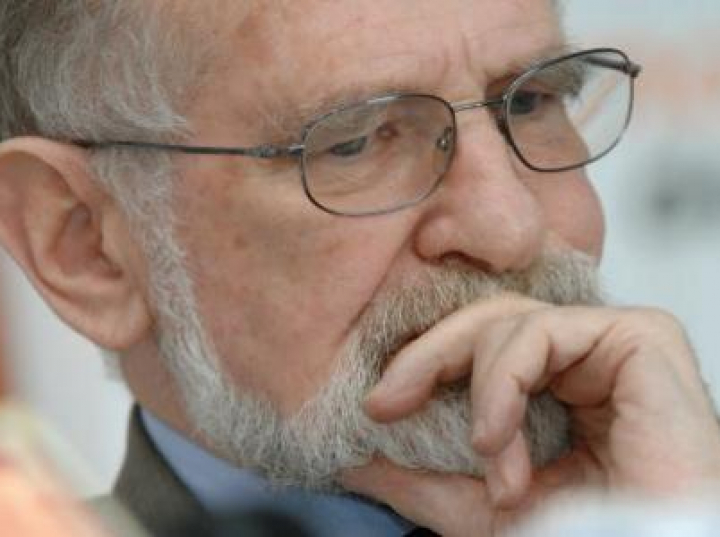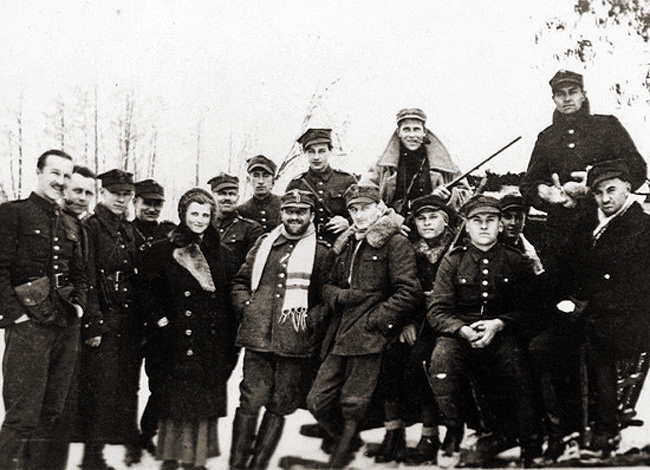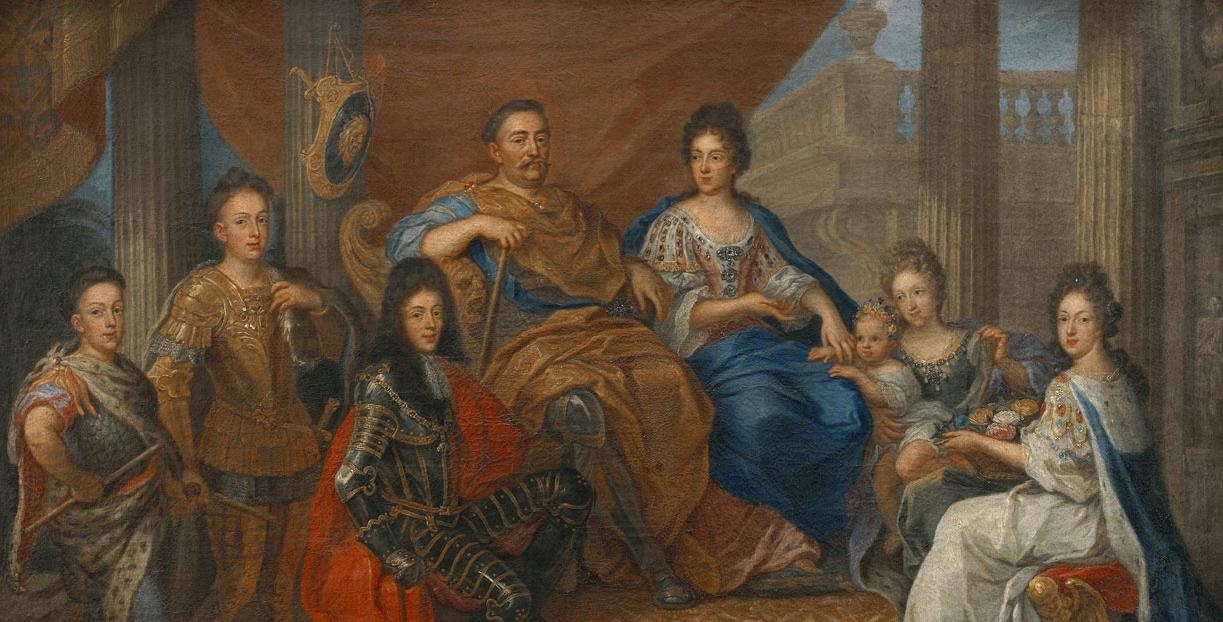Bronisław Geremek was a man of many passions: history and politics were the most important among them. His political achievements are much more noticeable because of their social impact and significance for the Polish state. Geremek embodied the successes of the foreign policy of post-1989 Poland: the country’s accession to NATO and the European Union. Both his competence and achievements in this area were related to his prime passion – history. Bronisław Geremek’s path from history to politics, with activities in both fields intertwined, was full of similar turbulences as the history of the Polish intelligentsia after the Second World War.
by Tomasz Siewierski
Childhood in Warsaw
He was born ninety years ago, on 6 March 1932, as Benjamin Lewertow in Warsaw, into the intellectual family of Sharca (later Alicja) and Boruch. ‘A Jewish family, Polish-speaking and immersed in Polish culture,’ – Geremek described it in a conversation with the Spanish essayist Juan Carlos Vidal. He spoke very little about his pre-war life. He was separated from it by the trauma of the war and the Holocaust. Mławska Street, located in the Old Town area, no longer exists: the house where the Lewertow family lived stood there. After Warsaw was occupied by the Germans, the family was sent to the ghetto. In 1942, they managed to get to the Aryan side. However, Boruch and Israel (Benjamin’s older brother) were imprisoned in Auschwitz where the former perished. After leaving the ghetto, Benjamin used the name Bronisław. He survived by hiding in the countryside with his mother. They were helped by Stefan Geremek, with whom Alicja got involved after the war.
Beginnings of scientific research
In 1948, the Geremeks returned to Warsaw. They settled in Żoliborz where Bronisław attended the Bolesław Limanowski High School. After graduating in 1950, he started studying history at the University of Warsaw. It was by no means an obvious choice. He considered medicine, economics and sociology, yet it was history that proved to be the final choice. His fellow students of the same year included other future researchers of history: Janusz Żarnowski, Teresa Monasterska, Andrzej Poppe, Krzysztof Groniowski, and Andrzej Wyrobisz.

The time when Bronisław Geremek entered the Institute of History of the University of Warsaw was special in many respects. The attempts to rebuild historical sciences in the Stalinist spirit made at that time ended in stalemate and ultimately – which is easier to see from the perspective of many years – in failure. This was a great achievement of the circle of professors coming from the seminar of Marceli Handelsman, who often had experience of serving in the Bureau of Information and Propaganda of the Home Army Headquarters: Tadeusz Manteuffel, Aleksander Gieysztor, Witold Kula, Marian Małowist, Stefan Kieniewicz, and others.
However, like most students of history, Geremek’s first steps were taken in the field of contemporary history, where he was greatly disappointed. Żanna Kormanowa, a dogmatic Marxist and communist party activist lecturing on the history of the workers’ movement, effectively discouraged him from dealing with the history of the 19th century. Marxism itself, however, remained an attractive intellectual proposition for Geremek (as it did for many of his peers). Only that he came across this methodology through his research in economic history – and here Marxism, despite its doctrinal treatment by those in power, could be a source of inspiration.
During his student years, Geremek also became politically involved – and completely uncritically at that. Together with Jerzy Holzer and Janusz Żarnowski, he was active in the Union of Polish Youth; he soon joined the Polish United Workers’ Party.
In Marian Małowist’s milieu
Bronisław Geremek particularly valued the classes on medieval general history taught by Marian Małowist, a world-renowned researcher on the issues of uneven economic development, founder of one of the most important historical schools in post-war Poland. Geremek remembered him many times warmly and with gratitude. In a conversation with Georges Duby, he talked about the beginnings of his collaboration with him, about the origin of his research: ‘Małowist was my master, he gave me the inspiration for my first works. He asked me if I spoke or read Dutch. I said I did not. Eventually, I had to read in this language a work of three hundred and fifty pages on the patriciate of Ghent in the 14th century! As a result, I wrote a dissertation of almost one hundred pages on the social movements in Ghent, in the 14th century, about Jacob and Philip Van Artevelde. On this occasion I had to access documents, learn to critically evaluate sources and develop my own research questionnaire: how to understand the people of the past, how to analyse social relations and social rebellion? This involved my first readings of historians, French medievalists and the Annales. In my MA thesis I had to delve into a completely different problem. Then, too, the first question was: “Do you know German?” When I answered in the negative, I was given the following topic: “The state of the Teutonic Order in the 14th and 15th centuries, relations between town and country”. In both cases, I was forced to learn a different field, and this represented not only a new topic, but also new issues, I became aware of what historical research was about, I learned the methodological requirements of my discipline. It was necessary to read and look for inspiration “next door”, that is in economics, sociology, ethnography, which at that time interested me much less, and later I took a liking to it.’
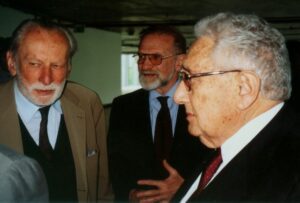
After defending his MA thesis, Geremek went to Paris to study at the École pratique des hautes études. He worked under Maurice Lombard, at which time he met the undisputed leader of the Annales milieu, Fernand Braudel. The trip to France was an extremely important experience for Geremek. He recalled it in a conversation with Vidal: ‘Through Małowist, I established my first contacts with French historians. When I went abroad for the first time to Paris in 1956, I carried letters of recommendation from Aleksander Gieysztor, Tadeusz Manteuffel and Marian Małowist. Gieysztor introduced me to the circle of traditional medievalists connected with L’École de Chartres, the most conservative school educating historians and archivists, Tadeusz Manteuffel directed me to the circle of Polish émigrés, and Marian Małowist to people from the Annales school.’
In the French capital, he prepared his doctoral dissertation on ‘Mercenary labour in the crafts of Paris in the 13th–15th centuries’. After returning from Paris in 1958, he found employment at the Institute of History of the Polish Academy of Sciences (IHPAS), and two years later he defended his doctoral dissertation. Naturally, his supervisor was none other than Małowist.
Builder of the Warsaw-Paris bridge
In the conditions of limited openness to the West after 1956, Polish historians particularly valued their contacts with the French scientific community, where the tone was set by the Annales school founded in the 1920s by Lucien Febvre and Marc Bloch, and continued in the next generation by Braudel and his circle of associates. There were several reasons for the friendly and fruitful contacts between the two circles. These included the openness of the French to Marxist inspirations, the flourishing socio-economic history of post-war Poland, as well as the inter-war traditions of these contacts under the patronage of Marcel Handelsman in Warsaw and Jan Rutkowski in Poznań.
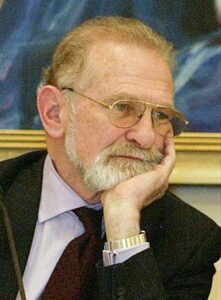
Bronisław Geremek was greatly impressed by Braudel’s work The Mediterranean Sea and the Mediterranean World in the Age of Philip II, which was compulsory reading at the Małowist seminar. The two-year stay in Paris, mentioned above, was also of great importance. In 1959, Jacques Le Goff came to Warsaw. Geremek became his guide in the capital, and their meeting gave rise to a long-term friendship. These contacts resulted not only in inspirations for the works of Bronisław Geremek and extensive contacts of the Warsaw historian with French researchers, but also in his taking the post of the head of the Centre of Polish Culture in France, which he held from 1962 to 1965.
Since the beginning of his academic career, Bronisław Geremek was an agent of transmission between Polish and French historiography. His achievements in this field are considerable. Apart from his organisational work, his work in this field should be emphasised: a series of articles on eminent French scholars: Marc Bloch, Lucien Febvre, Fernand Braudel, Jacques Le Goff, and the first Polish edition of a collection of Braudel’s articles (Historia i trwanie [orig. Ecrits sur l’Histoire] 1971), which he not only preceded with a foreword written together with Witold Kula, but was also the author of their translation.
Historian of ‘those the world does not need’
Like many historians who started their academic career immediately after the war, Bronisław Geremek devoted his first works to economic issues. However, at the beginning of the 1960s, as one of the first historians in Poland, he turned to the history of mentality. He was inspired by his French friends: the aforementioned Le Goff and Georeges Duby. While still a student at the Małowist seminar – perhaps in the period when he was finishing his PhD dissertation – he wrote an article on vagrancy in France. The text, several dozen pages long, has survived only in manuscript form, with remarks by his master on the margins. Soon, in 1962, he published a pioneering article signalling his interests, ‘Umysłowość i psychologia zbiorowa w historii’ [Mind and collective psychology in history] in Przegląd Historyczny. A huge part of Geremek’s work was devoted to social history and the history of mental culture in medieval Europe. However, the historian was particularly fond of the areas of exclusion.
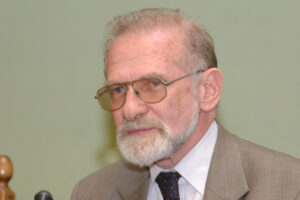
In 1971, Bronisław Geremek’s book The Margins of Society in Late Medieval Paris was published. It was the basis of his habilitation. The book’s protagonists are down-and-outs, criminals, prostitutes and other people on the margins of society. The book was published twice in French. In 1972, a popular story on the same subject, Życie codzienne w Paryżu Franciszka Villona [Everyday life in François Villon’s Paris] was published. This book brought Geremek the greatest popularity among Polish readers.
In the following years, Geremek did not provide the Polish reader with much. However, if one takes a look at the bibliography of his works, it turns out that a number of books were published in Italian and French, while in Polish there are mainly articles for scholarly periodicals. This is related to Geremek’s civic engagement. Publications of his books were withheld by the censorship. Works that were available to readers in the West were not printed in Poland until 1989. Litość i szubienica. Dzieje nędzy i miłosierdzia [Compassion and gallows. A history of poverty and mercy] was published in the excellent series entitled Wielkie problemy dziejów człowieka [Great problems of human history], which had been edited for the Czytelnik publishing house since the end of the 1970s by the eminent Warsaw historians Michał Tymowski and Rafał Karpiński. When the publisher finally decided to print it, the work appeared in half the circulation of the previous books in the series. The author himself said the following about the book: ‘The subject of my book was the problem of breaking stereotypes. I tried to show how ethos, promoted patterns and actual social attitudes change. In the Christian ethos of poverty it is treated as a value, but when it results from one’s own choice, not from one’s life condition. In the modern world, poverty is treated as a social disease.’
It was also only in 1989 that the book Świat opery żebraczej. Obraz włóczęgów i nędzarzy w literaturach europejskich XV-XVII wieku [The beggar’s opera world. The image of vagabonds and paupers in European literature of the fifteenth and seventeenth centuries] was published. The work waited eleven years before going to print. Bronisław Geremek also had to wait a long time for a professorship – he received it in 1989.
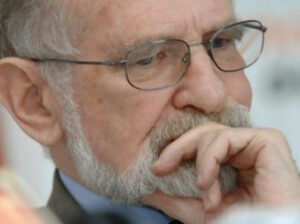
Creator of History
For eighteen years, Bronisław Geremek was a member of the Polish United Workers’ Party. In 1968, in protest against the Warsaw Pact invasion of Czechoslovakia, together with a group of his colleagues from the IHPAS, he returned his Communist Party membership card. A historian so attached to travelling abroad, on the threshold of his habilitation, he was aware of the risks he was taking. This courageous gesture was followed by other decisions. In 1978, he became involved in work for the Society for Scientific Courses affiliated with the Workers’ Defence Committee. However, the most important moment and at the same time – as Andrzej Garlicki emphasised – the turning point in Geremek’s political biography was his visit with Tadeusz Mazowiecki in August 1980 to the striking Gdańsk Shipyard. They both became the main advisors to Lech Wałęsa. In the following months, he was involved in the central initiatives of the Solidarity Trade Union. As a result, after martial law was imposed on 13 December 1981, he was interned. He was detained, among others, in the Jaworze centre, where he stayed together with other Solidarity activists, including the historians Jerzy Holzer, Jerzy Jedlicki, Marek Barański and Władysław Bartoszewski.
He paid a high price for his civic engagement: in 1985, he was dismissed from the IHPAS. However, this did not stop him from continuing as an activist. Geremek played an important role during the Round Table Talks. He played an even greater role in independent Poland. After 1989, he was an MP, and an activist of the centrally liberal Democratic Union and then Freedom Union.
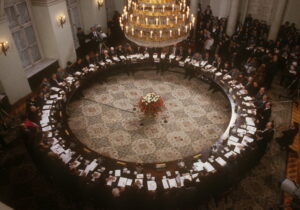
Polish voice in Europe
In 1997, Bronisław Geremek became Minister of Foreign Affairs. In March 1999, Poland joined NATO: he submitted the ratification documents in Independence, USA, in the presence of Madeleine Albright. In the same month, Geremek began negotiations for Poland’s accession to the European Union.
From 2004, he was a Member of the European Parliament. He was an influential and internationally respected politician. As a representative of the Republic of Poland in the European Parliament, he not only looked after the interests of his own country but also tried to create the shape and future of the European Union itself, repeatedly presenting his own vision of its development. He played an important role in promoting the Lisbon Treaty, among others.
Bronisław Geremek died unexpectedly on 13 July 2008 as a result of injuries sustained in a car accident. He rests in the Warsaw Military Cemetery next to Jacek Kuroń and Leszek Kołakowski.
After the death of Bronisław Geremek, at one of the meetings devoted to his memory, Władysław Bartoszewski recalled the words of Paul Lendvai, which may serve as an appropriate summary of the biography of the outstanding historian and politician: ‘He was a true European. With his international recognition, he paved the way for Poland to join NATO and the European Union. He was a profoundly liberal man who always despised the art of subtle lies and sudden changes of front, typical of post-communist lawbreakers. Whether as Minister of Foreign Affairs or as a lecturer and historian, whatever his role, he remained an open, friendly bridge-builder. In times of selling out values and opportunistic careers, the masks fall from politicians’ faces. Bronisław Geremek never wore a mask.’
Author: Tomasz Siewierski
Translation: Mikołaj Sekrecki

